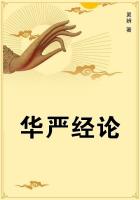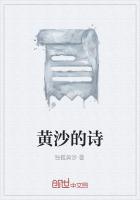All earthly and material things should be worn out with use, and not preserved against decay by any unnatural artifice. Even when broken and disabled from overuse they have a kind of respectability which must commend itself to the observer, and which partakes of the pensive grace of ruin. An old table with one leg gone, and slowly lapsing to decay in the woodshed, is the emblem of a fitter order than the same table, with all its legs intact, stored with the rest of the furniture from a broken home. Spinning-wheels gathering dust in the garret of a house that is itself falling to pieces have a dignity that deserts them when they are dragged from their refuge, and furbished up with ribbons and a tuft of fresh tow, and made to serve the hollow occasions of bric-a-brac, as they were a few years ago. A pitcher broken at the fountain, or a battered kettle on a rubbish heap, is a venerable object, but not crockery and copper-ware stored in the possibility of future need. However carefully handed down from one generation to another, the old objects have a forlorn incongruity in their successive surroundings which appeals to the compassion rather than the veneration of the witness.
It was from a truth deeply mystical that Hawthorne declared against any sort of permanence in the dwellings of men, and held that each generation should newly house itself. He preferred the perishability of the wooden American house to the durability of the piles of brick or stone which in Europe affected him as with some moral mia** from the succession of sires and sons and grandsons that had died out of them. But even of such structures as these it is impressive how little the earth makes with the passage of time. Where once a great city of them stood, you shall find a few tottering walls, scarcely more mindful of the past than "the cellar and the well" which Holmes marked as the ultimate monuments, the last witnesses, to the existence of our more transitory habitations. It is the law of the patient sun that everything under it shall decay, and if by reason of some swift calamity, some fiery cataclysm, the perishable shall be overtaken by a fate that fixes it in unwasting arrest, it cannot be felt that the law has been set aside in the interest of men's happiness or cheerfulness. Neither Pompeii nor Herculaneum invites the gayety of the spectator, who as he walks their disinterred thoroughfares has the weird sense of taking a former civilization out of storage, and the ache of finding it wholly unadapted to the actual world. As far as his comfort is concerned, it had been far better that those cities had not been stored, but had fallen to the ruin that has overtaken all their contemporaries.
IV
No, good friend, sir or madam, as the case may be, but most likely madam:
if you are about to break up your household for any indefinite period, and are not so poor that you need sell your things, be warned against putting them in storage, unless of the most briskly combustible type.
Better, far better, give them away, and disperse them by that means to a continuous use that shall end in using them up; or if no one will take them, then hire a vacant lot, somewhere, and devote them to the flames.
By that means you shall bear witness against a custom that insults the order of nature, and crowds the cities with the cemeteries of dead homes, where there is scarcely space for the living homes. Do not vainly fancy that you shall take your stuff out of storage and find it adapted to the ends that it served before it was put in. You will not be the same, or have the same needs or desire, when you take it out, and the new place which you shall hope to equip with it will receive it with cold reluctance, or openly refuse it, insisting upon forms and dimensions that render it ridiculous or impossible. The law is that nothing taken out of storage is the same as it was when put in, and this law, hieroglyphed in those rude 'graffiti' apparently inscribed by accident in the process of removal, has only such exceptions as prove the rule.
The world to which it has returned is not the same, and that makes all the difference. Yet, truth and beauty do not change, however the moods and fashions change. The ideals remain, and these alone you can go back to, secure of finding them the same, to-day and to-morrow, that they were yesterday. This perhaps is because they have never been in storage, but in constant use, while the moods and fashions have been put away and taken out a thousand times. Most people have never had ideals, but only moods and fashions, but such people, least of all, are fitted to find in them that pleasure of the rococo which consoles the idealist when the old moods and fashions reappear.














